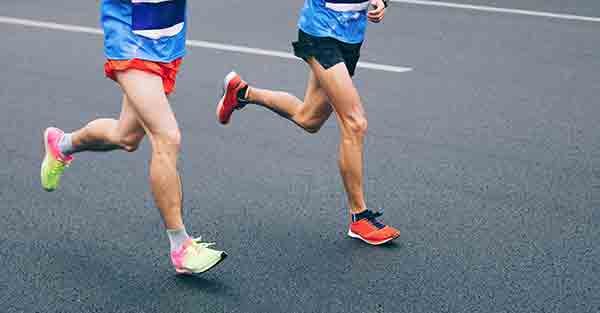
The Impact of Marathon Training on Your Body
By Kate LaPak, PT, DPT | Therapydia Kona
Running a marathon is not something many people consider a “walk in the park.” Even so, over 50,000 people finish the TCS New York City Marathon each year, the largest marathon event in the United States. Long-distance running has been shown to have a number of health benefits including benefits to muscles, the cardiovascular system, joints, mental health, and overall health when performed correctly and with adequate training (1).
Impact on Muscles
Any type of running or aerobic training can help to increase muscle strength and power as long as you are progressively overloading. As you ramp up your training, your muscles adapt to further distances and faster paces by increasing their aerobic capacity (2). In regards to injury, most running injuries are a result of overuse or loading too quickly in relation to your individual work capacity. In order to prevent overuse, it is important to make sure the work capacity of your muscles can handle the load of running. Running while injured can also promote compensatory techniques which can lead to chronic injuries. One way to avoid injury is to make sure you are adequately warmed-up before beginning your run.
Impact on Cardiovascular System and Systemic Health
Long-distance running has been shown to decrease the risk of diabetes and cardiovascular disease (3). Running helps to increase cardiac output, increase stroke volume i.e. the volume of blood pumped from the heart with each contraction, and decrease resting heart rate (2). However, some studies suggest that excessive long-distance running without adequate rest can actually damage the heart (4).
Impact on Joints
Running and aerobic training can help to increase ligament and tendon strength and increase bone density (2). Long-distance running does not increase the risk of osteoarthritis in healthy individuals without comorbidities or contraindications for higher-level activities (1, 5). Some comorbidities that may accelerate the onset of osteoarthritis include intrinsic anatomical joint instability or high body mass index (BMI). In these cases, strength training in addition to aerobic exercise can help to reduce the risk for osteoarthritis.
Impact on Mental Health
You have probably heard about “runner’s high” and the effects running can have on mood and perceived “euphoria” by means of endorphin release. Exercise in general has been shown to improve mood, alertness, and concentration (6). Endurance training has been reported to show a variety of psychological benefits including stress reduction, improved mood, and reduced pain perception (7).
Running is a great way to improve your physical and mental health. Interested in starting a running program, improving your running performance, or want to get back to running after an injury? A physical therapist can help by providing an individualized, comprehensive examination and provide you with the tools you need to reach your goals and prevent future injuries. Therapydia clinics also offer running assessments that include video analysis so you can get the most out of your running.
References:
- Cymet TC and Sinkov V. Does long-distance running cause osteoarthritis? J Am Osteopath Assoc. 2006;106(6)342-345.
- Haff GG and Triplett NT. 2016. Essentials of Strength Training and Conditioning. Champaign, IL: Human Kinetics.
- Cantwell JD. Cardiovascular aspects of running. Clin Sports Med. 1985;4(4):627‐640.
- O’Keefe, JH et al. Potential adverse cardiovascular effects from excessive endurance exercise. Mayo Clin. Proc. 2012;87(6):587-595
- Chakravarty EF et al. Long distance running and knee osteoarthritis: a prospective study. Am J Prev Med. 2008;35(2)133-138.
- Alexandratos K et al. The impact of exercise on the mental health and quality of life of people with severe mental illness: a critical review. Br J Occup Ther. 2012;75(2):48–60.
- Boecker H et al. The runner’s high: opioidergic mechanisms in the human brain. Cereb Cortex. 2008;18:2523-2531.